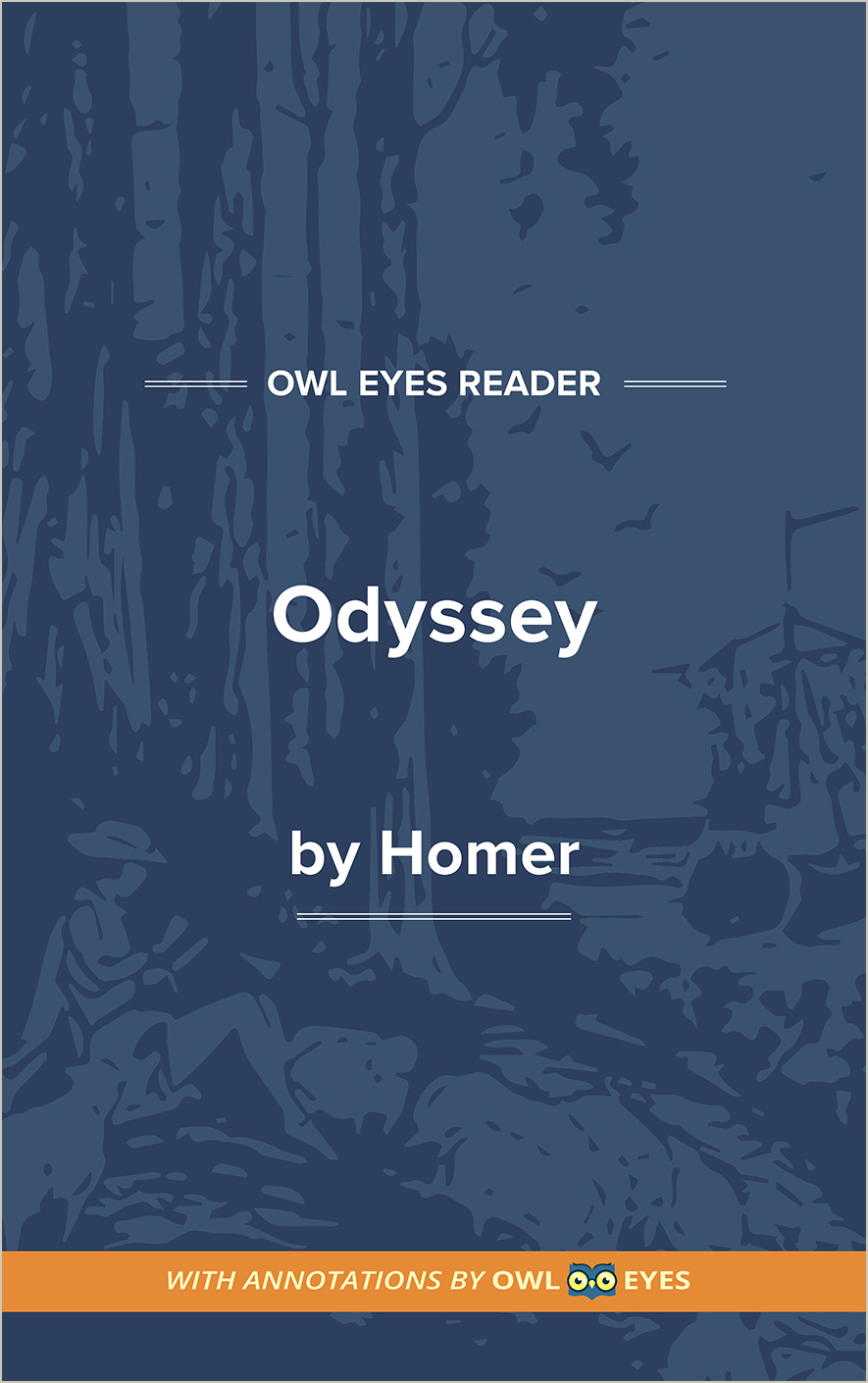Study Guide
Analysis Pages
Characters Discussed
Odysseus
Odysseus (oh-DIH-see-uhs), a far-roving veteran of the Trojan War who, having incurred the anger of Poseidon by blinding the sea god’s son Polyphemus, a gigantic Cyclops, is fated to roam for ten years before he can return to his homeland of Ithaca. Leaving Troy, he and his followers sail first to Ismarus. In the sack of the Ciconian city, Odysseus spares the life of Maro, a priest of Apollo, who in turn gives the conqueror some jars of potent wine. Gales then drive the Greeks to the country of the Lotus-eaters, from which they sail to the land of the fierce Cyclopes. There Ulysses and twelve of his band are captured by Polyphemus. After Odysseus frees himself and his companions by a clever ruse, leaving the Cyclops maimed and blinded, the band journeys to the Isle of Aeolus. In the land of the Laestrygones, man-eating giants destroy all but one of his ships and devour their crews. At Aeaea, Odysseus outwits the enchantress Circe and frees his men after she has turned them into swine. In the dark region of the Cimmerians, he consults the shade of Tiresias, the Theban prophet, to learn what awaits him in Ithaca. Following the advice of Circe, Odysseus escapes the spell of the Sirens, passes safely between Scylla and Charybdis, and arrives at Thrinacia. There, his remaining comrades are drowned for their impiety in eating cattle sacred to Hyperion. Cast adrift, Odysseus floats to the island of Ogygia, where for seven years he lives with the lovely nymph Calypso. Finally, the gods take pity on him and order Calypso to release him. On a makeshift raft, he continues his voyage. After his raft is wrecked by Poseidon, he battles the waves until he arrives, exhausted, on the island of Drepane. Nausicaä, daughter of the king of the Phaeacians, finds him and leads him to the royal palace. Warmly received by King Alcinous, Odysseus takes part in celebration games and tells the story of his adventures. Alcinous gives Odysseus rich gifts and returns the wanderer by ship to Ithaca. There, in disguise, he meets his son Telemachus, now grown to manhood, routs and kills the suitors who throng his palace, and is reunited with his loyal wife Penelope. Odysseus is the ideal Greek hero, eloquent at the council board, courageous in battle, resourceful in danger, and crafty in wisdom. He is the darling of the goddess Athena, who aids him whenever it is in her power to do so.
Penelope
Penelope (peh-NEH-loh-pee), his devoted wife, a model of domestic fidelity, skilled in handicrafts. Still attractive in spite of twenty years of anxiety and grief during the absence of Odysseus, she is by custom forced to entertain importunate, insolent suitors whom she puts off from year to year through various stratagems. Until betrayed by her false servants, she weaved by day a burial robe for Laertes, her father-in-law, and at night unraveled her work. The return of Odysseus is for her an occasion of great joy, but first she tests his knowledge of the construction of their wedding bed to avoid being duped by a plausible stranger. Although she is noteworthy for her forbearance and fidelity, there are occasions when she complains bitterly and laments her sad fate.
Telemachus
Telemachus (teh-LEH-muh-kuhs), the son of Odysseus and Penelope, grown to handsome young manhood during his father’s absence. Also favored by Athena, he accuses the suitors of being parasites, journeys to other lands in search of news of his father, and returns to fight bravely by the side of Odysseus when the 112 suitors of Penelope are routed and put to death. His comeliness, manly bearing, and good manners show him to be his father’s son when he meets wise King Nestor and King Menelaus.
Athena
Athena (uh-THEE -nuh), also called Pallas Athena, the goddess of wisdom and the patron of arts and crafts. Moved by pity and admiration, she becomes the benefactor of Odysseus and pleads with Zeus, her father, to release the hero from the seven-year embrace of the nymph Calypso. Assuming various...
(The entire page is 2,354 words.)
Owl Eyes subscribers get unlimited access to our expert annotations, analyses, and study guides on your favorite texts. Master the classics for less than $5/month!

